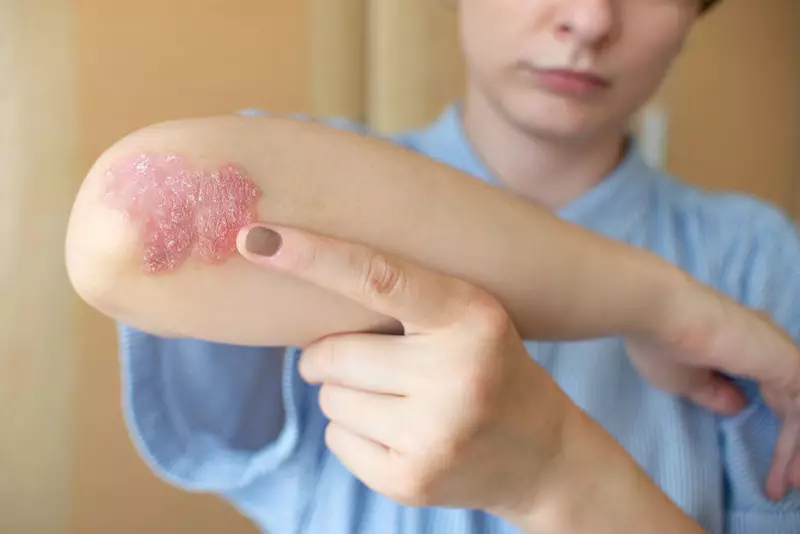
Psoriasis, a chronic skin condition affecting millions worldwide, is often misunderstood. In this in-depth exploration, we’ll unravel the intricacies of psoriasis, debunk common myths, and delve into the question that lingers in the minds of many: Is psoriasis contagious?
Understanding Psoriasis:
Inflammatory Nature:
A Chronic Inflammatory Condition: Psoriasis is not merely a skin condition; it’s a chronic inflammatory disorder. The immune system mistakenly attacks healthy skin cells, triggering an overproduction of skin cells that leads to the formation of plaques and scales. Understanding this inflammatory nature is crucial for demystifying the condition.
Genetic Predisposition:
Inherited Susceptibility: Genetics play a significant role in psoriasis. Individuals with a family history are more likely to develop the condition. However, having a genetic predisposition doesn’t mean that psoriasis is contagious. It’s an inherited susceptibility, not a transmissible infection.
Debunking Psoriasis Myths:
Contagious Misconception:
Clarifying the Contagion Myth: One of the most persistent myths about psoriasis is that it is contagious. Let’s set the record straight: Psoriasis cannot be transmitted from person to person through touch, saliva, or any other means. It is not an infectious disease but rather a result of complex genetic and immune system factors.
Environmental Triggers:
Factors That Aggravate Psoriasis: While environmental triggers such as stress, infections, and certain medications can exacerbate psoriasis symptoms, they do not make the condition contagious. Addressing these triggers is essential for managing the symptoms but doesn’t alter the non-contagious nature of psoriasis.
Psoriasis Varieties and Presentation:
Plaque Psoriasis:
Most Common Form: Plaque psoriasis, characterized by raised, red patches covered with silvery-white scales, is the most common form. Understanding the distinct presentation of plaque psoriasis helps individuals recognize the condition and dispels the notion of contagiousness associated with its appearance.
Guttate Psoriasis:
Small, Drop-like Lesions: Guttate psoriasis presents as small, red spots, often mistaken for an infectious rash. It’s crucial to emphasize that the appearance of lesions does not imply contagion. Educating the community about the different presentations aids in dispelling unfounded fears.
Impact on Quality of Life:
Physical Discomfort:
Itchiness and Discomfort: The physical discomfort associated with psoriasis, including itchiness and pain, is a result of the inflammatory processes. Addressing these symptoms is vital for improving the quality of life for individuals with psoriasis and dispelling the misconception of contagion.
Psychological Impact:
Addressing Emotional Well-being: Beyond the physical manifestations, the psychological impact of psoriasis cannot be understated. Individuals may experience anxiety, depression, or social isolation. Dispelling the myth of contagion contributes to a more supportive environment, reducing the emotional burden.
Psoriasis Treatment Approaches:
Topical Treatments:
Managing Symptoms: Topical treatments such as corticosteroids and moisturizers help manage psoriasis symptoms by reducing inflammation and moisturizing the skin. Clarifying that these treatments focus on symptom control reinforces the understanding that psoriasis is not contagious.
Systemic Medications:
Addressing Internal Inflammation: Systemic medications target the internal inflammatory processes of psoriasis. It’s crucial to emphasize that these medications do not alter the non-contagious nature of the condition but aim to provide relief from symptoms and improve overall skin health.
This in-depth exploration aims to unmask the complexities of psoriasis, dispel myths, and definitively address the question: Still if you have concern or doubts related to psoriasis being contagious. By fostering a deeper understanding and compassion within the community, we can create an environment that supports individuals living with this chronic skin condition.
 Living With Healthy Hunger Health Blog
Living With Healthy Hunger Health Blog

